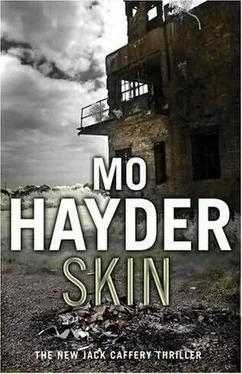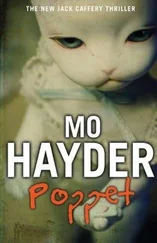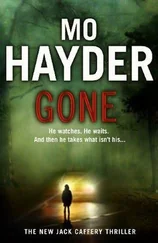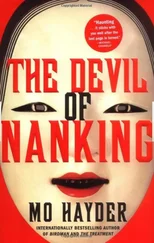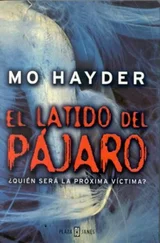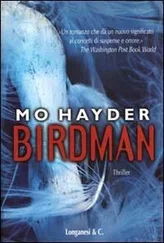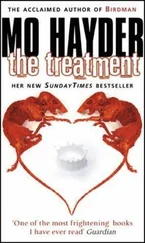Mandy came a few paces down the path in her bare feet and stared at the shape in the boot. In the orangy sodium street-light her expression was blank. Almost a minute passed. Then something vital in her face – something structural – seemed to slip. She glanced up at the neighbours’ windows. Swallowed. ‘Close it, please.’
Flea slammed the boot and came back to the gate. She took a breath and looked up at the sky. Clouds again. Always clouds. ‘I’ve come to tell you you’ve got what you wanted. You’ve won.’
‘Won what?’
‘I’m going to take care of the problem.’
There was a pause. Mandy glanced out at the street to make sure no one was there, then looked back at Flea. ‘Good. That’s good.’
‘Is Thom there?’
‘He’s asleep. It’s been hard on him. I don’t want to wake him up.’
Flea stared at Mandy. ‘Tell me something.’
‘Do I have to?’
‘The truth, please. The truth. It’s all I’m going to ask of you, and then I’ll be gone.’
‘What?’
‘Thom. Did he put you up to this? Or was it your idea?’
Mandy’s eyes glittered. She shot the car boot a glance. She was shivering now.
‘Well? Was it your idea or his?’
‘For everyone’s sake.’ Her voice was quiet. Almost inaudible. ‘It’s better you never know the answer to that question.’
And she went back up the path and closed the door, leaving Flea in the empty street, lonely and cold under the lamppost.
The countryside was deserted. The clouds had wrapped themselves across the fields, trapping everything, every leaf and branch, in an eerie, chalky light. Flea drove slowly, determinedly, taking the Focus down the small routes, the places she knew weren’t going to be monitored by the traffic guys at this time of night. Just a handful of other cars were out. She wondered what she’d look like to the oncoming drivers. Her face set and hard in their headlights. Gripping the wheel, eyes boring through the windscreen. Half possessed.
She pulled off the road. The Focus bumped along the rutted drive to quarry number eight. In the boot the body shifted against the cardboard. She found a weak place in the surrounding bushes, swung the steering-wheel, gunned the engine, and forced the car deep into the undergrowth. It came to a halt, the axle hard against a fallen tree-trunk. She got out, crunched her way back to the quarry edge. Stood on the deserted track, listening hard, peering back along the route she’d come. She hadn’t been followed. Elf’s Grotto was so remote, so isolated, no one ever came up here. Still, she watched the road for almost five minutes until she was satisfied.
About fifteen years ago, when she and Thom were still kids, a woman had gone missing from a nightclub in Bath. One minute she’d been there, the next she was gone. In the playground at school they used to scare each other: they’d say whoever had got the woman would go after kids next. It was only when Flea grew up and entered the police that she learnt the truth. The woman hadn’t been killed by a bogeyman but by the one-night-stand she’d left the club with. He’d reversed his car at her. Probably never meant to kill her, but did. He’d dumped her on a pig farm and Flea had spent three weeks one stifling summer pulling animal bones out of a pit there, steam-cleaning them, then passing them to an anthropologist. They never found the body and, without it, the CPS couldn’t bring the case. Even though everyone knew the truth.
It showed what you could get away with if a body was well enough hidden. The most sensible thing Flea could do right now was to hire a chainsaw and cut Misty into a thousand pieces. Scatter them in rivers and fields. But even this new, cold imperative of hers couldn’t look that solution in the eye. So she’d come to another frantic but rational conclusion – the only one she could think of.
She dragged her dive kit from the back seat, dumped it a few feet away and set about covering the car with sticks and branches. Then she pulled off her shoes, got into the drysuit, hauled on the buoyancy jacket and the cylinders, and gave the regulator three short breaths – one, two, three. She secured all the harness straps, deadlocked the car doors – checked again that it couldn’t be seen from the slip road – and carried her fins down to the edge of the quarry. She pulled them on, then the mask, and climbed down the rusting ladder that led into the quarry. At 1.13 a.m. exactly she slipped silently out of sight, into the dark waters of quarry number eight.
The Marley family had always dived. Mum and Dad had taught the children. They’d put them in junior Solar suits aged eleven. Most family holidays revolved around scuba- and wreck-diving: the Red Sea, Cyprus, once into Truk Lagoon half bankrupting themselves. It was how they had come together, the place they found comfort, the place they settled into something easier. Even the accident hadn’t changed that. But diving here now, alone and in the dark? It broke all the rules of danger and common sense. It was a dumb, stark invitation to death.
She sank slowly, letting out small amounts of air from the suit as she descended to fifteen metres. The divelight she held pointed downwards, its membranous beam picking out swirling particles in the pitch darkness below. The light pierced a long way down, maybe another fifteen metres, but it didn’t reach the bottom. She was in the deepest part of the quarry. There was still twenty-five metres – almost seventy-five feet – of unlit water beneath her.
Down another fifteen metres. She found the net from memory, its weed-coloured webbing faint and furred in the torchbeam. She handheld herself along it twenty feet until she could see the warning sign. The hole she’d made last week was still there, the frayed edges moving slowly like wafting sea anemones. She ducked through, twisting over as she did to stop the cylinders snagging – she didn’t want a repeat of last time. A few feet inside the net, at the place where the accident had happened, she stopped, turned around and around in the water, pointing the torchbeam into the swirling darkness.
Usually, when she did decompression stops, she’d clip herself to a rope with a carabiner and rest on her front, horizontal in the water. Tonight she wanted to stay vertical. Wanted to be able to turn, to see 360 degrees. Upping the buoyancy in her jacket, releasing a little air from her drysuit so it didn’t shoot up and gather round the neck seal, she found her neutral buoyancy, then let her arms drift out sideways. The divelight shone off to the side and she bobbed peacefully. Like a spaceman in the blackness.
She rested to start with. Eyes closed. Concentrated on emptying her head so there was nothing, no thought, no sound, just the in-out-in-out of her breathing. She’d heard once, years ago, that some seabirds have an internal compass that they use to navigate across oceans, around half the world, and always come back to the same breeding ground. The birds don’t have to think about it, they give themselves up to something ancient and miraculous – the fact that their bodies know what their heads can’t: which is north and which is south.
She tried to imagine herself as a seabird. Put her head back. Turned her face to the surface. She wanted to be told a direction. She wanted to be like a seabird and be told which way to go.
The minutes passed. Between each noisy breath her pressurized ears played tricks on her. From everywhere she was being pulled by imaginary sounds, her attention drawn first right, then left. She let them wash over her, waiting to feel where her body wanted to lean, what it wanted to do.
‘ You’ve got to look after yourself …’
Her eyes flew open. The torch beam came up in front of her, seesawing against the black. She gripped it. Steadied it. Turned it from side to side, hunting out the sound.
Читать дальше
